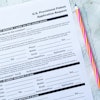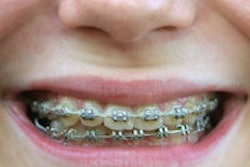Researchers have identified a potential new risk factor for obstructive sleep apnea: asthma.
Using data from the Wisconsin sleep cohort study, which has been following approximately 1,500 people since 1988, researchers at the University of Wisconsin found that patients who had asthma were 1.70 times (95%) more likely to develop sleep apnea after eight years.
It is the first longitudinal study to suggest a causal relationship between asthma and sleep apnea diagnosed in laboratory-based sleep studies. The study was presented May 19 at the American Thoracic Society meeting in Philadelphia.
The connection between asthma and obstructive sleep apnea (OSA) was even stronger among participants who developed asthma as children. Childhood-onset asthma was associated with 2.34 times (95%) the likelihood of developing sleep apnea.
The researchers also found that the duration of asthma affected the chances of developing sleep apnea. For every five-year increase in asthma duration, the chances of developing OSA after eight years increased by 10%. Participants in the Wisconsin sleep cohort, who are all between the ages of 30 and 60 in 1988, complete in-laboratory polysomnography, clinical assessments, and health history questionnaires every four years.
For the asthma-OSA study, the researchers focused on 773 cohort enrollees who did not have OSA when they joined the study and then determined whether their sleep apnea status had changed after eight years.
During the eight-year follow-up period, 45 subjects developed asthma, and they were 48% more likely to develop new-onset sleep apnea. However, because the sample size was small, the increase lacked statistical significance and falls short of establishing causality between asthma and sleep apnea.



















